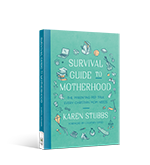
Sign Up for Updates
Connect
TOPICS
- Latest Blog
- Fiction
- Inspirational/Devotional
- Men's Christian Living
- Prophecy
- Women's Christian Living
- View All
ARCHIVES
5 Ways Christians Can Better Understand and Engage Critical Theory
Posted on Sep 21, 2023 Topic : Men's Christian Living, Women's Christian Living
Posted by : Neil Shenvi and Pat Sawyer

Blog
Today, Christians trying to navigate our rapidly-changing culture are faced with a dizzying array of unfamiliar words and phrases: “intersectionality,” “white fragility,” “cisgender,” “ableism,” “colorblind racism.” Even more confusing are the ideas behind these labels. Concepts like “systemic racism” and “gender fluidity” have found their way from the halls of academia to the nightly news, the workplace, and the elementary school classroom. Activists in the United States and all over the world believe that society is suffused with oppressive systems and structures which must be overturned in the name of “social justice.” What are we to make of these claims? Where did they come from? And what biblical guardrails should shape our thinking around issues like race, class, and gender?
The secular social justice movement and the new terminology associated with it are outgrowths of the critical tradition, which began with Karl Marx and the Frankfurt School. Throughout its history, the critical tradition has been concerned with how power creates and perpetuates social inequalities. Although Marx, writing in the 19th century, focused almost exclusively on economic power and oppression, critical theory today is an umbrella term that encompasses many different critical social theories including critical race theory, queer theory, intersectional feminism, and critical pedagogy. The overriding goal of each of these subdisciplines is liberation: liberation from laws, norms, systems, structures, and stereotypes that advantage one group at another's expense. Space will not permit a full treatment of the many deeply unbiblical assumptions baked into critical theory and its offshoots. However, we will offer several guiding principles for Christians seeking to engage the secular social justice movement.
First, Christians should (and generally do!) care about social ills like poverty, racism, and sexism.
The Bible is suffused with commands for individual Christians to care for the poor and reject any form of partiality (racial or otherwise), and for rulers to govern justly. Our concerns about critical theory should not lead us to reject these nonnegotiable commands.
Second, Christians should define their terms and should insist that others do so as well.
Against the backdrop of critical theory, words like “justice,” “oppression,” “racism,” and “gender” have all been redefined. Resist the urge to use popular jargon. Make sure all your speaking and thinking is rooted in the Bible's categories, not the culture's.
Third, Christians should seek to truly understand the perspectives we criticize.
We should listen before we speak. We should hear both sides of an argument before passing judgment. We should extend grace and charity to others. These basic biblical principles must govern all our interactions, including ones related to “hot button” issues.
Fourth, Christians must rest in and display the unity of the church.
One of the most dangerous tendencies of critical theory is to divide people into oppressed and oppressor groups and then to pit them against one another, even within the church. Christians must forcefully reject this posture. At a time when Jews and Gentiles were deeply divided, Paul insisted that Jesus’s redemptive work on the cross had united them in one body and called them all into a new family where there is “neither Jew nor Greek, slave nor free, male nor female.” Our different social identities are not erased but are subsumed beneath the glorious weight of our identity in Christ.
Finally, we must stay rooted in the gospel.
Every social problem is ultimately an outworking of our fundamental human problem: sin. And the ultimate solution to the problem of sin is the gospel: the good news of Jesus's life, death, and resurrection. Both as the church and as individuals, let's cling to the gospel as the source of our hope, joy, and peace.

Read more in Critical Dilemma by Neil Shenvi and Pat Sawyer

